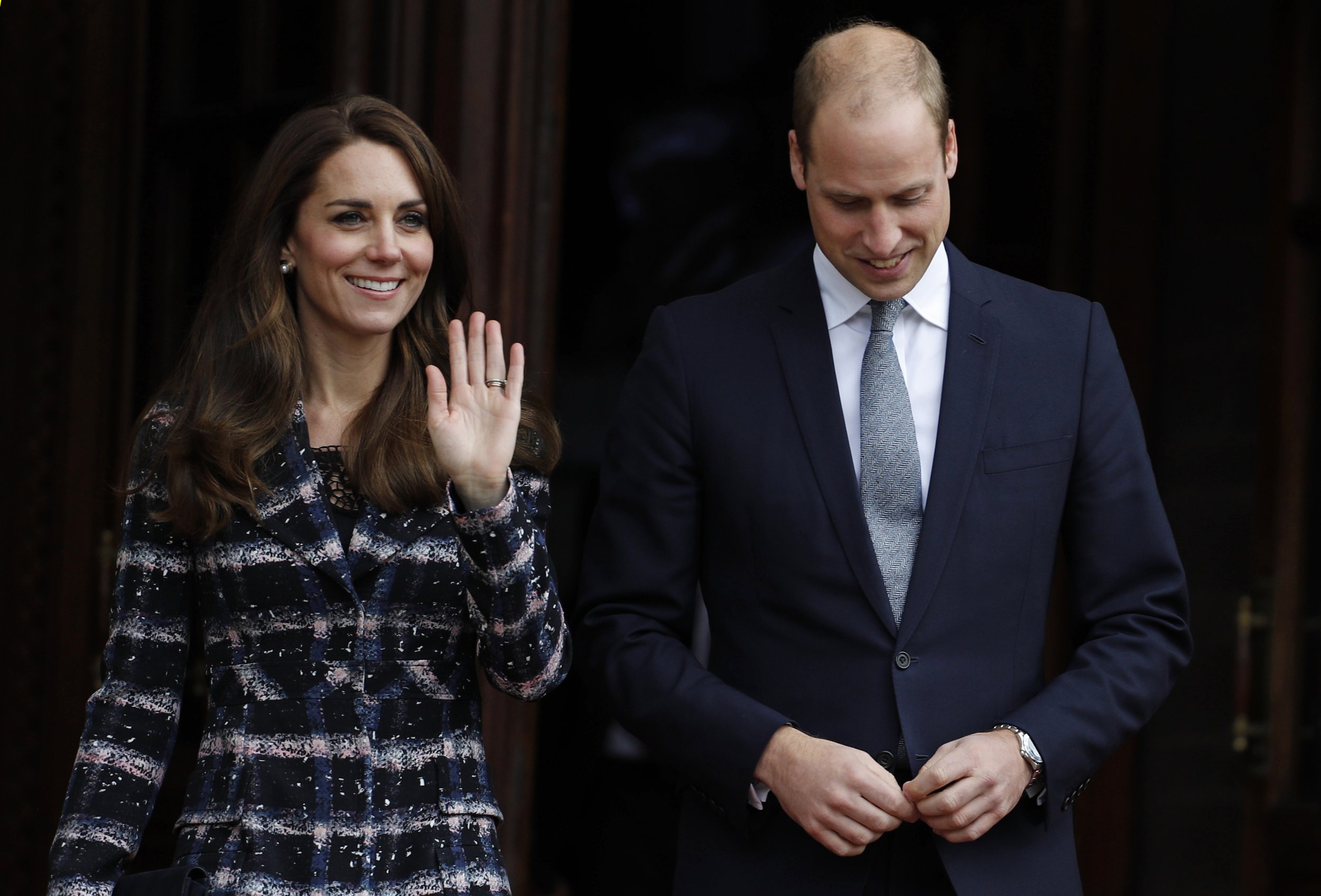
Donald Trump and the British royal family: one of them is famed for genteel restraint, a heavily controlled public image and a gracious approach to charity work. The other one is Donald Trump.
At first glance, the two don't have much in common, but now they do share one thing—travel plans.
Last week, the president visited Warsaw in Poland, where he made a keynote speech. Next week, Prince William, the Queen's grandson and second in line to the British throne, his wife Kate Middleton, the Duchess of Cambridge, and their children, Prince George and Princess Charlotte, will take in the same city as part of a five-day tour to Poland and Germany.
So why might the royals want to head to Poland?
Brexit Britain
According to a statement from the Duke and Duchess of Cambridge's office, the tour was launched "at the request of The Foreign and Commonwealth Office." So the British government may hope to reap some diplomatic benefit from the trip. William and Kate have a huge international profile and a visit from them has potential for big political capital long term.
Rarely has it been so important to drum up goodwill on the continent; as Brexit negotiations begin and the U.K. starts disentangling itself from the EU, it's important the island nation maintains good relations in other areas with its European allies.
Poles are the biggest immigrant group in the U.K. As of 2016, there are more residents of the U.K. born in Poland than those born in India, traditionally a major home country for immigrants to Britain thanks to the two nations' colonial history.
Since 2004, when Poland joined the European Union, its citizens have flocked to the U.K. in search of better paid jobs and educational opportunities. Even though Poland's economy and jobs market are now much stronger, more than 800,000 Poles remain in Britain.
That leaves a potentially big sticking point between the British and Polish governments, whatever their other points of agreement: any attempt by the British government to weaken the rights of Polish citizens living in Britain after Brexit would be resisted in Warsaw. Any diplomacy that can emphasize how seriously the U.K. takes its Polish links—the two countries are traditionally allies in the EU—will not go amiss.
Business ties
Poland, formerly a communist state, is now one of capitalist Eastern Europe's emerging success stories. In June, the World Bank estimated that the country's economy will grow by 3.3 percent in 2017, up from 2.8 percent in 2016. It's becoming known for a strong entrepreneurship scene and good education.
So it makes sense that Britain wants to cement business links with the country. The Duke and Duchess's visit will help with that; on the first day of their trip, the couple will visit "The Heart," a startup incubator in Warsaw.
The aim of the visit is to launch the "Warsaw-London bridge" initiative, which aims to link small businesses from the Polish capital with resources in the British one, helping them to grow and deepening relations between the two countries.
Cultural connections
On day two of the tour, the Duke and Duchess will stop off at the Shakespeare Theater in Gdansk, a port city in the north of Poland.
Not many people realize that Shakespeare, essentially England's national poet, has a long history of performance in Gdansk. According to the theater, English actors first came to the city in 1601, where Shakespeare's plays were performed during in his lifetime. As part of the Hanseatic League of trading outposts, the city at the time had a large English and Scottish community of about 1000 people.
The theater was completed in 2014. At the time, the theater's director, Jerzy Limon told the BBC it was part of a long tradition of British cultural influence abroad.
"Rock music is today's most conspicuous example of British cultural presence worldwide," he said, "But it started long ago with these companies that toured the continent and came to Gdansk almost every summer."
And the Duke and Duchess have a personal connection to the theater; it would probably never have come about were it not for the support of William's father, Prince Charles, who agreed to be a patron in 1993 after responding to an unsolicited letter from Limon.
Uncommon Knowledge
Newsweek is committed to challenging conventional wisdom and finding connections in the search for common ground.
Newsweek is committed to challenging conventional wisdom and finding connections in the search for common ground.
About the writer
Josh is a staff writer covering Europe, including politics, policy, immigration and more.
To read how Newsweek uses AI as a newsroom tool, Click here.








